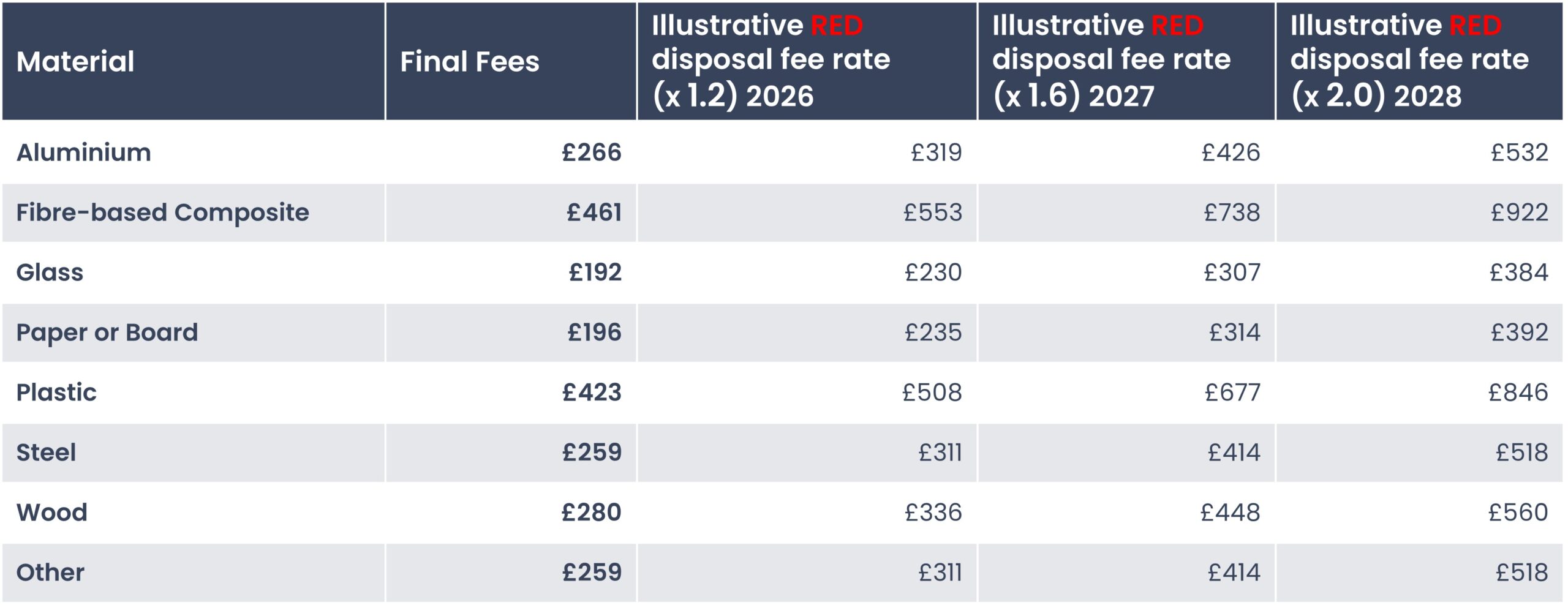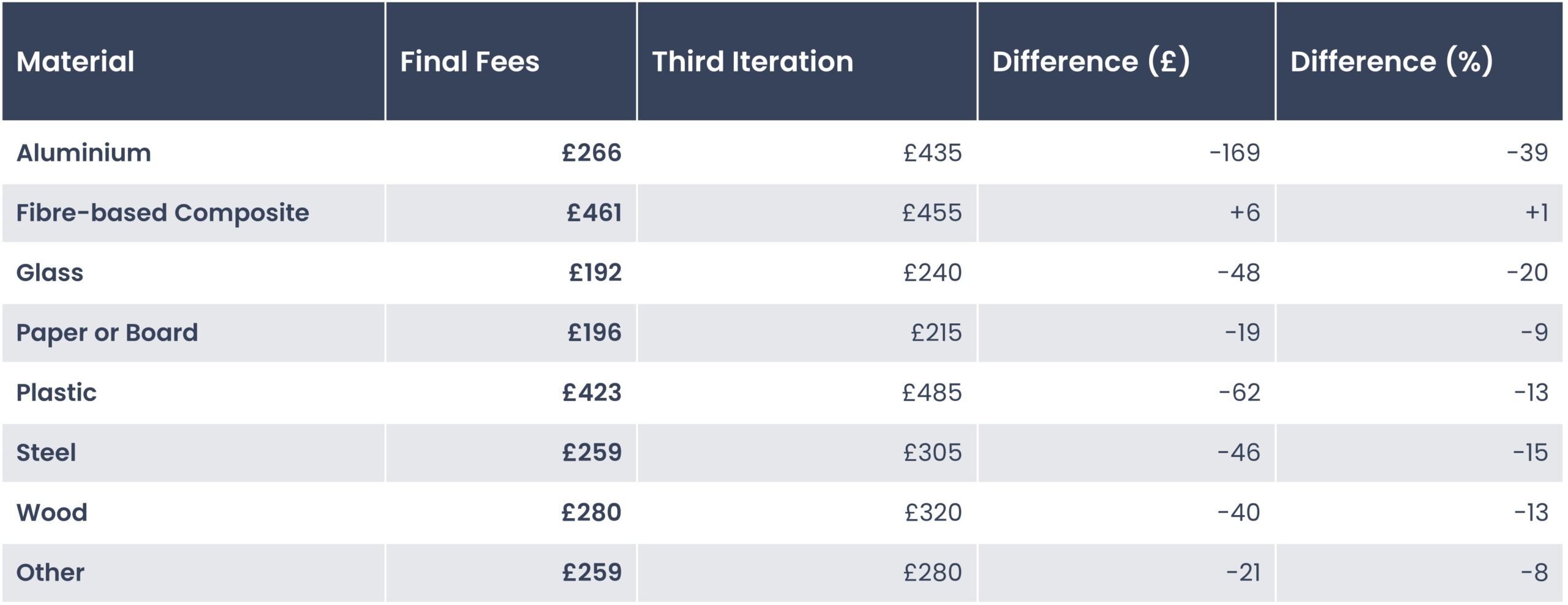Alongside the confirmed base fees, PackUK has also published the Producer Fee Modulation Policy Statement, setting out how disposal fees will be adjusted from 2026 onwards to encourage the use of more recyclable packaging.
The new modulation policy establishes a clear three-year framework that links producer fees to packaging recyclability, as assessed through the Recyclability Assessment Methodology (RAM) ratings. Starting from the 2026/27 financial year, the policy will apply escalating modulation factors of 1.2x, 1.6x, and 2.0x over consecutive years.
What this means in practice:
- Producers of Green-rated (highly recyclable) packaging will benefit from reduced fees.
- Producers of Red-rated (poorly recyclable) packaging will face progressively higher charges.
- Special provisions apply to medical packaging, where recyclability is limited by regulatory requirements.
This modulation approach is designed to maintain overall revenue levels while introducing meaningful financial incentives for producers to improve the recyclability of their packaging. By setting out a phased, long-term plan, the policy gives industry the certainty needed to make strategic investments in sustainable packaging and operational change.
Modulated fees will take effect from the second year of the scheme, applying to 2026–2027 financial year invoices, which are based on 2025 packaging data.
The table below demonstrates how the modulation factor for Red RAM packaging materials impacts disposal fees.







